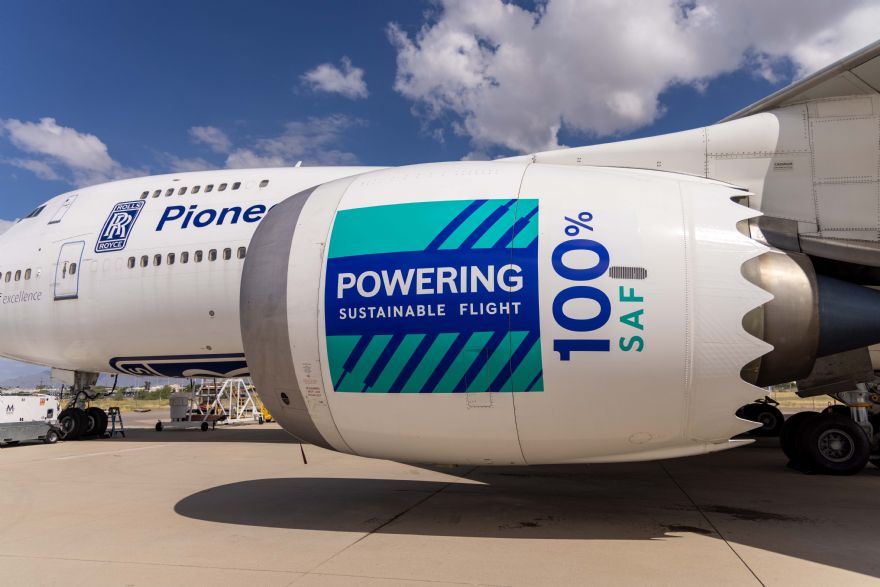
According to
ADS, the ‘premier trade organisation’ for companies in the UK aerospace, defence, security and space sectors,
Rolls-Royce,
Airbus and
Shell are calling for ‘further ambition and collaboration throughout the aviation sector and with governments’ to enable the transition of long-haul aviation towards ‘net zero’ ahead of the aviation goals set by the UN’s ‘Race to Zero’.
These companies says that as the ‘technology enablers’ are being put in place, the focus must be on the infrastructure, investment and policy frameworks necessary to support the scaling up and use of sustainable aviation fuels (SAFs).
Under the UN’s Race to Zero goals, the current ‘breakthrough’ required for the decarbonisation of aviation is to achieve a minimum of 10% SAF use by 2030 with the proportion not reaching 100% earlier than 2050. That said, Rolls-Royce, Airbus and Shell are investing in technology that could enable that to happen sooner. For example, Rolls-Royce confirmed that by 2023 all its Trent engines used across a range of long-haul aircraft will have been proven compatible with 100% SAF.
That builds on its earlier commitment to test Trent models currently in production and means that “within two years, Rolls-Royce will have proven that ‘net zero’ carbon operation is possible with about 40% of the world’s long-haul aircraft engines”.
All Airbus aircraft are currently certified to operate on up to a 50% blend of SAF mixed with kerosene; Airbus says it aims to achieve certification of 100% unblended SAF by the end of this decade. Meanwhile, Shell says it has committed to produce 2 million tonnes of SAF per year by 2025, which is more than 10-times the total amount of SAF produced globally today.
By the end of the decade, at least 10% of Shell’s global aviation fuel sales will be SAF. Shell is already building one of Europe’s biggest biofuels plants in the Netherlands, with production due to start in 2024.
ADS says new all-electric, hybrid-electric and hydrogen technologies will have a role to play in reducing the aviation industry’s use of fossil fuels over the medium to long-term. “For long-haul aviation, the challenge of decarbonisation is particularly difficult and SAF represents a clear pathway to ‘net zero’ flight over longer distances.”
Warren East, Rolls-Royce’s chief executive, said: “At Rolls-Royce, we believe in the positive, transformative potential of technology. We believe we have the technology enablers to make long-haul aviation compatible with ‘net zero’ carbon.
Flying generates between 2% and 3% of global emissions, but as easier-to-abate sectors decarbonise that proportion will increase, so shortening aviation’s journey to ‘net zero’. However, we will only create the focus and momentum required to achieve this if we ratchet our collective ambition beyond the current target of achieving 10% SAF usage by 2030.
“We need partners who share our vision for the use of SAFs as a solution for reducing emissions on long-haul flight, to help all of us successfully transition to a ‘net zero’ carbon future.”